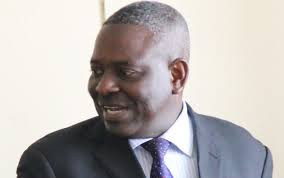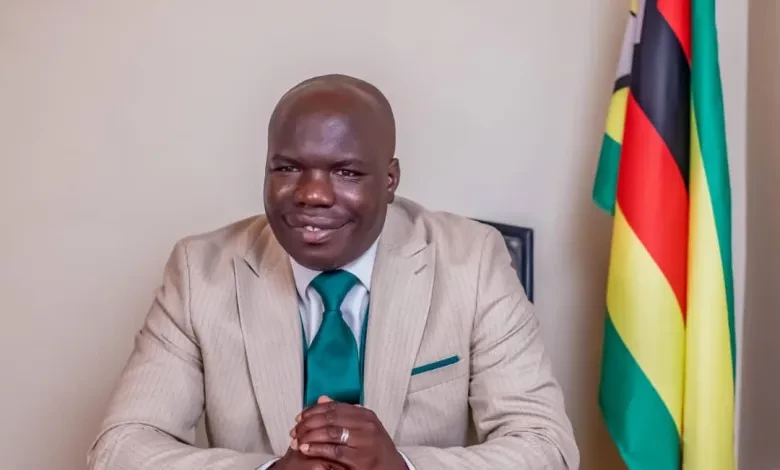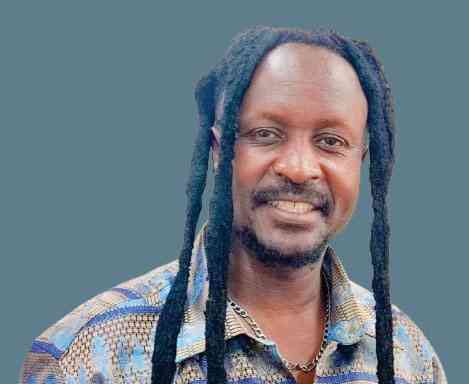
Former Justice, Legal and Parliamentary Affairs minister Happyton Bonyongwe’s autobiography, One Among Many: My Contribution to the Zimbabwe Story, is a most welcome addition to the narratives on the history of Zimbabwe’s struggle for independence, coming as it does from a former combatant himself and subsequently a prominent factor in the military-security apparatus of the state.
The book’s blurb seeks to extol the publication in the mould of such earlier renditions as that of former spy chief Ken Flower’s Serving Secretly (1987).
But this is perhaps an exaggerated if not also an inappropriate comparison on the part of the publisher, Weaver Press (which has just folded up, with Bonyongwe’s book being the very last of its publications), trying to add a sensational twist for marketing effect.
For, Bonyongwe’s account is far from a spy drama nor does it in any way whatsoever betray the confidentialities and security protocols of an organisation - the Central Intelligence Organisation (CIO) - that he served at its apex for a quarter of a century.
And, unlike Flower who has inadvertently exposed himself as triple agent (British, Rhodesian and Zimbabwean - at least for those of his acolytes who are prepared to overlook his nefarious past as essentially hostile to our cause for liberation),
Bonyongwe is the proverbial freedom fighter. His book speaks for itself.
In historical retrospect, Bonyongwe falls in the category of the youths whom some of us, as teachers and student leaders of the early 1970’s, helped to politicise in the context of the Pearce Commission(1971) and the last stage of the war of liberation that began in earnest in the north east of Zimbabwe in December 1972.
But, at a tender age of barely sixteen and on the eve of his O Level examinations which he sacrificed for the struggle, Bonyongwe was perhaps one of the youngest of those, like Chris Mutsvangwa, Sobusa Gula-Ndebele, Duri, John Mayowe and Boniface Chidyausiku all of whom abandoned university education for the struggle in the mid 1970’s, that consciously made the decision to cross the borders and contribute to the struggle for independence as active combatants.
- Happyton Bonyongwe autobiography: A welcome addition to narratives on history of Zimbabwe’s struggle
Keep Reading
And Bonyongwe’s account is one of the first to detail the mind of a politically conscious Zimbabwean youth of the ‘70’s.
Earlier accounts like those of Dzinashe Machingura who, among others like Tendai Mudambo (Cde Pfepferere), Dominic Chinenge (Cde Chiwenga) and Perrence Shiri, represented the first exodus of students to the struggle at the turn of the 70s, are more retrospective than as intimate as Bonyongwe’s.
For me, it is Bonyongwe’s detailed account of the underlying reasons behind his decision to leave school and cross the border into Mozambique.
Most touching and heartrending indeed; not to mention the unique story of his father who, unlike most parents those days, encouraged rather than discouraged his only son to leave school and join the struggle across the border.
The anguish of a mother as she sees her son go to where he may never return alive.
Bonyongwe lays all bare in a narrative pregnant with honesty, poignant in its import, with an immediacy almost like yesterday.
In doing so, Bonyongwe is reminding some of us who journeyed to the struggle in its closing years, of the poetic irony of how the teachers who politicised their students into the war of liberation as active combatants, would in turn be inspired by their selflessness and commitment.
This is an enduring story about the Zimbabwe of the 70’s; Bonyongwe’s story is a reminder that it is not too late for other former Zanla and their Zipra counterparts to put pen to paper, not only as a contribution to our history but as veritable personal records.
Yes, I have no reservations whatsoever in recommending Bonyongwe’s autobiography, especially for those also interested in his post- liberation trajectory as an able soldier, securocrat and lawyer.
I remain grateful for his generosity, and for confiding in me as one of the very few people to receive the book at my office at SAPES Trust a few weeks ago.










